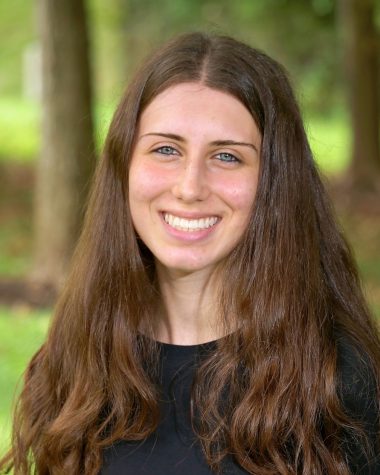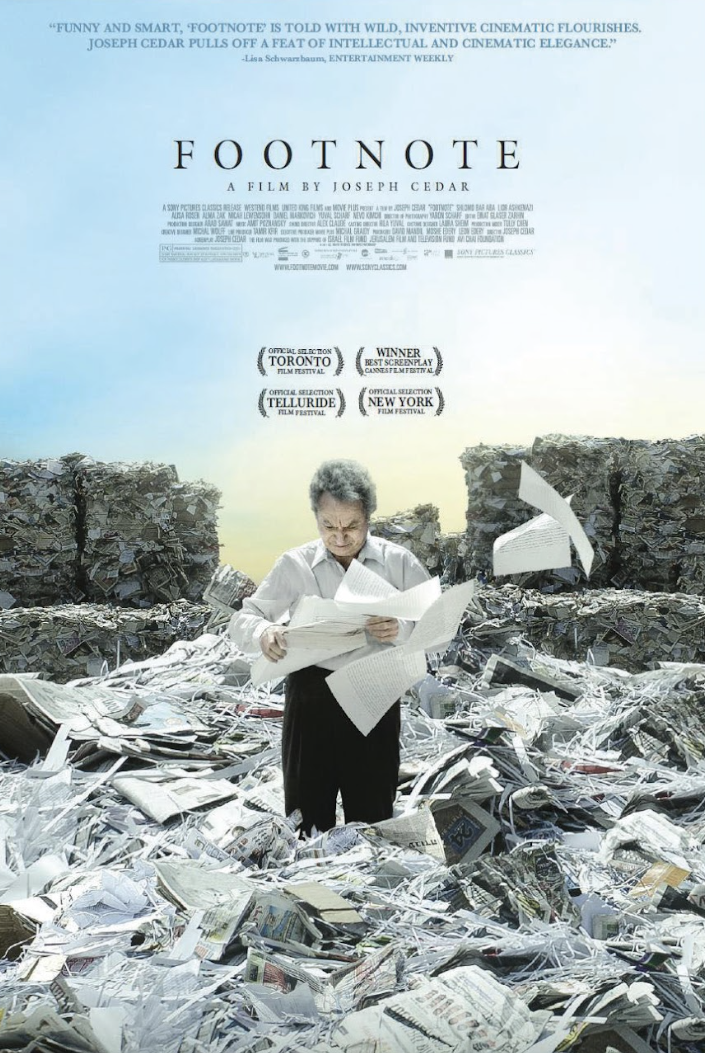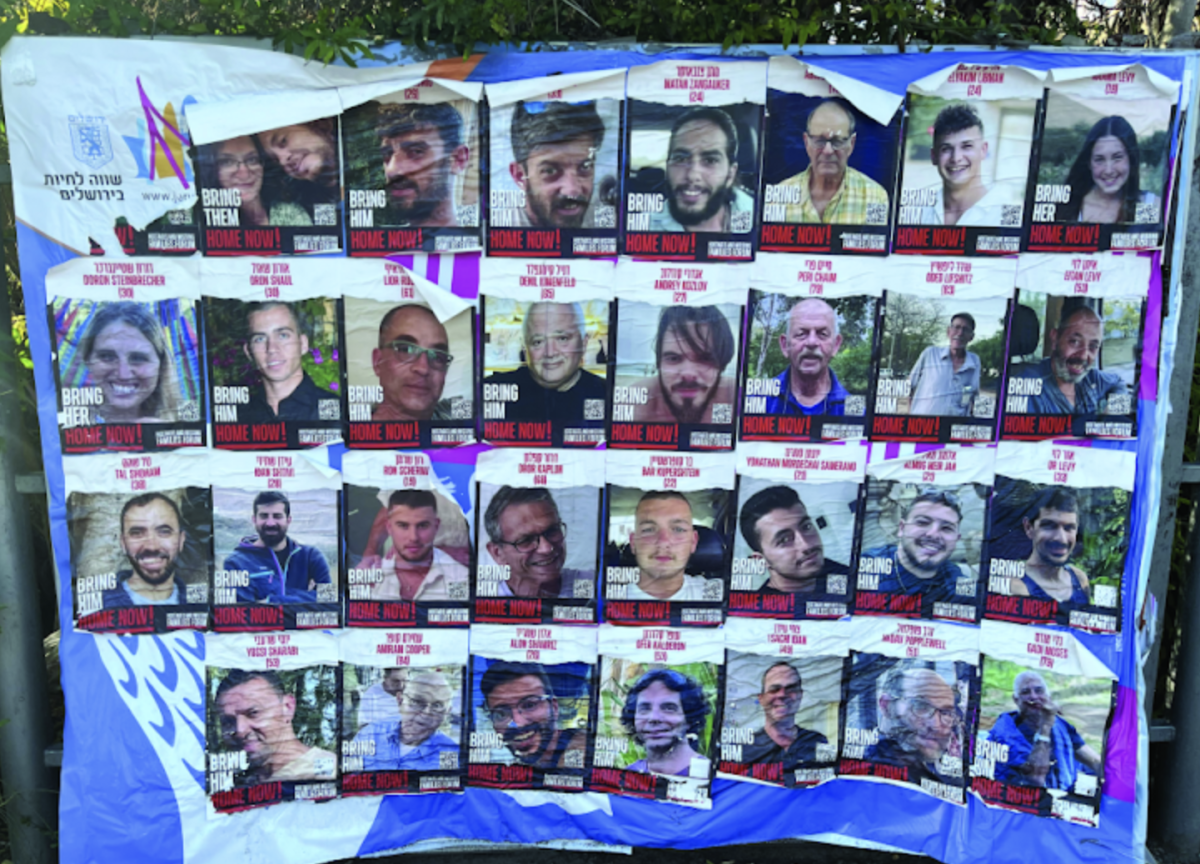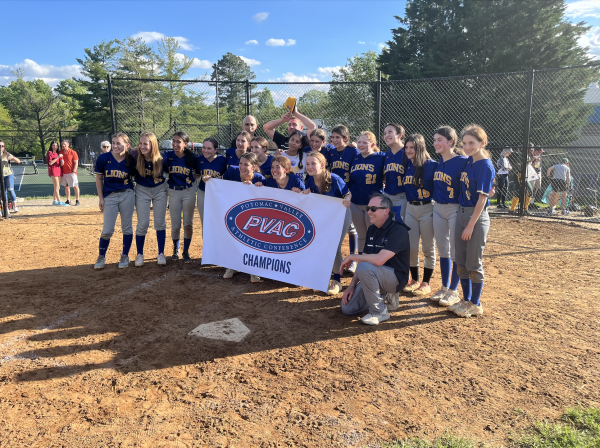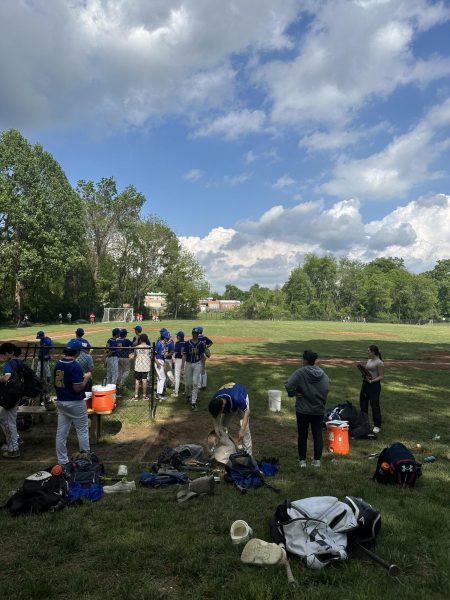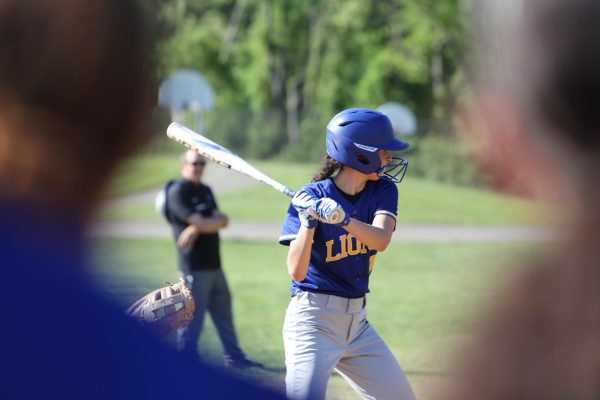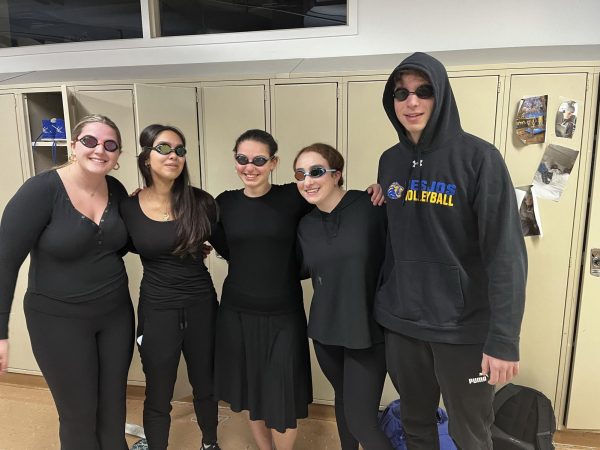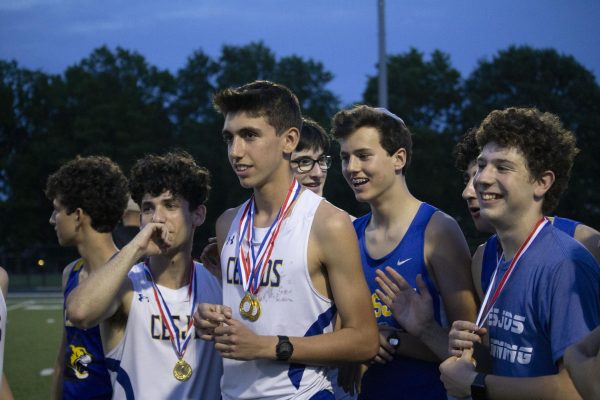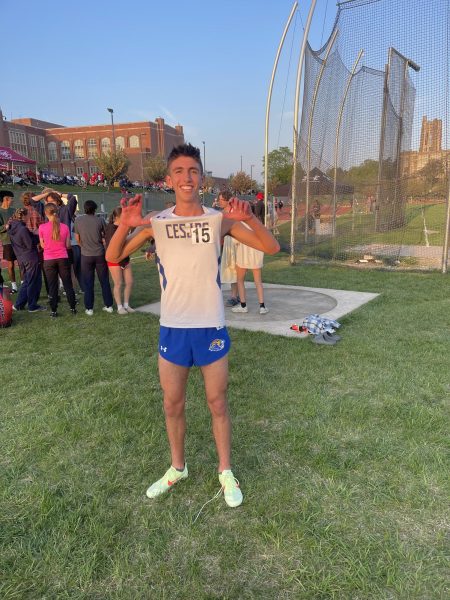About to win
April 11, 2022
Francesca Reichbach’s épée whips through the air as she surges toward her opponent. Her coach’s voice reverberates in her mind. “Raise your arm, raise your arm!” She knows that this match is a gateway to larger competitions and competing on the world stage, so she must give it her all.
Francesca competed in the Junior Olympics in February 2022. The Junior Olympics are held annually by the United States Amateur Athletic Union (AAU), and unlike the Olympics, are open only to American competitors and held in American cities. This year, they were held in Salt Lake City, Utah.
Francesca qualified for the women’s cadet épée, which is a division for fencers aged 16 and younger. There were initial ‘pool’ rounds where the fencer gets into a group and faces all of the people in their pool. After that, they were ranked on the pool round’s match results, and they then compete in direct elimination matches.
Although she did not end up winning a medal at the Junior Olympics, Francesca spoke highly of the experience.
“I knew it would be really awesome if I did [compete in the Junior Olympics],” she said. “I really did want it, and I was just kind of like ‘this is really cool.’”
Jennifer Reichbach, Francesca’s mother, describes the atmosphere of the Junior Olympics as very encouraging and exciting. She was especially touched by the overwhelming support she saw from Francesca’s teammates.
“There was kind of an electricity in the air,” Jennifer said. “It was just very heartwarming and we were very happy for her.”
Despite the results, Francesca’s coach of five years, Janusz Smolenski, was very proud of her for qualifying. He understood the importance of this opportunity.
“I think [it] is a great success to qualify and participate in this competition,” Smolenski said. “It is her first step in her fencing career, so it is a very, very important step.”
According to Francesca, she has been fencing since elementary school, following in the footsteps of her older siblings. Her brother qualified for the Junior Olympics when he was her age; and still competes in college.
She trains two to three times a week and usually practices from 7:30 to 9:30 p.m. However, in order to prepare for the Junior Olympics, Francesca had to dedicate many additional hours to private lessons. She noted that practicing for the Junior Olympics varied greatly from regular practice, as it was more focused on actually fencing rather than merely just focusing on learning techniques.
“Instead of doing lessons where you are learning new things, they are lessons where I am… actually fencing my coaches… I was more ‘in the action’,” Francesca said. “…I did a lot more private lessons where I was fencing other fencers in my club and my coaches.”
To balance her training and her school work, Jennifer and Frankie set up a calendar to make sure everything was done ahead of time.
“I was like, ‘oh my god mom I can’t go, I have so much work’, and she was like, ‘no you have to go,’” Francesca said. “I never skipped [fencing practice], but it really was a stressful time in terms of work.”
After fencing at the Junior Olympics, Francesca has her eyes set on even larger competitions.
“A lot of my friends go international in Poland or Slovakia where there are actual Olympians there. That would be pretty sick [to go international],” Francesca said.


